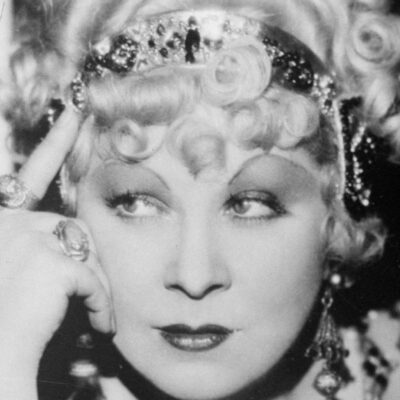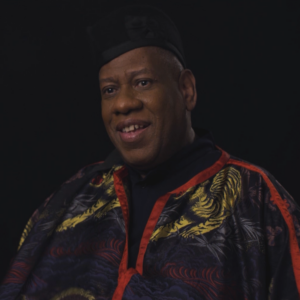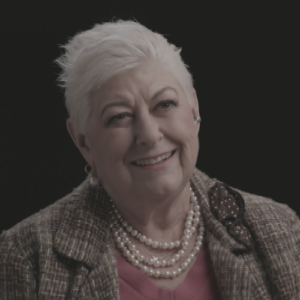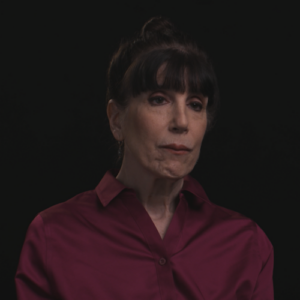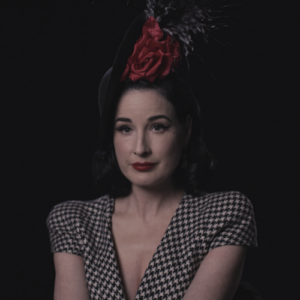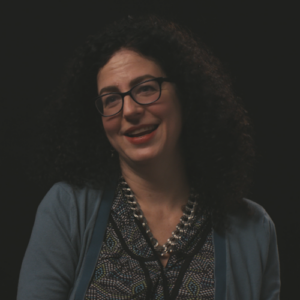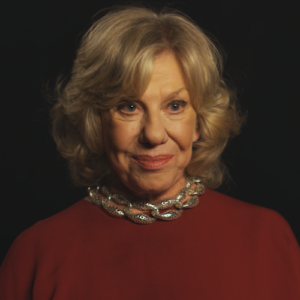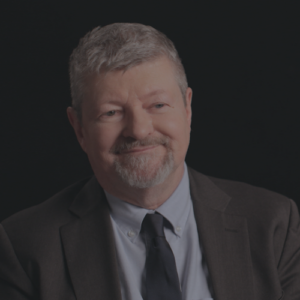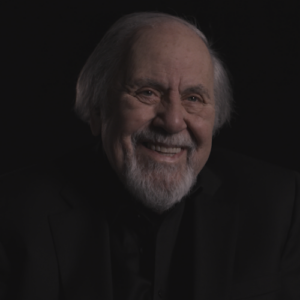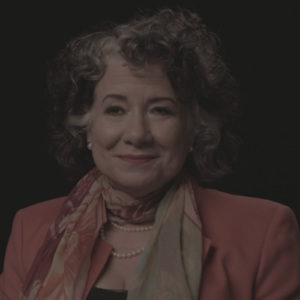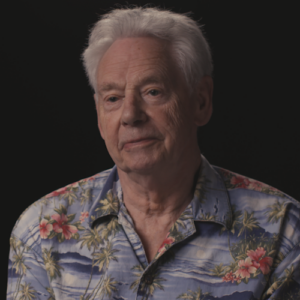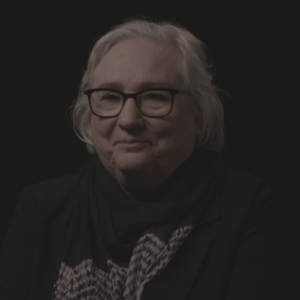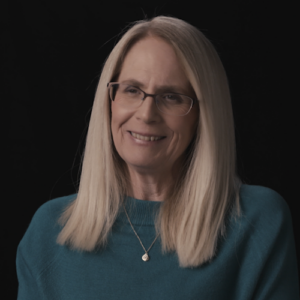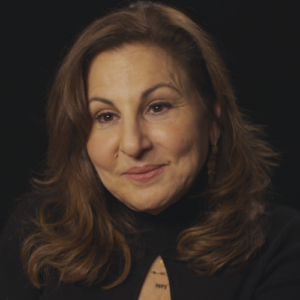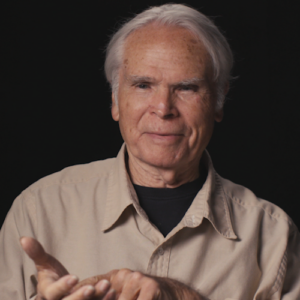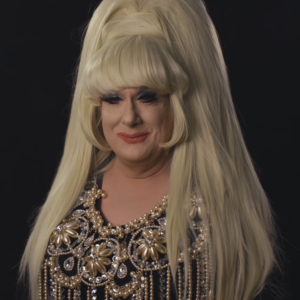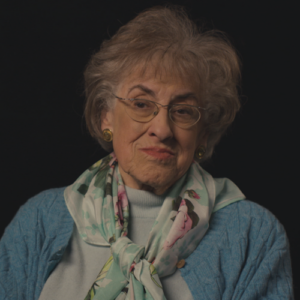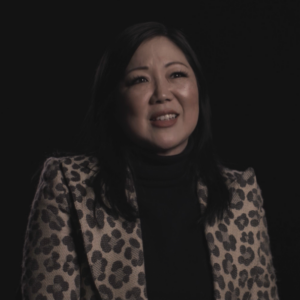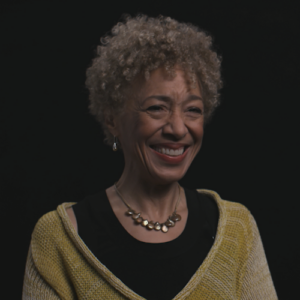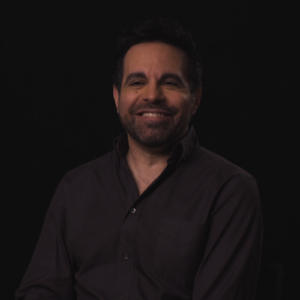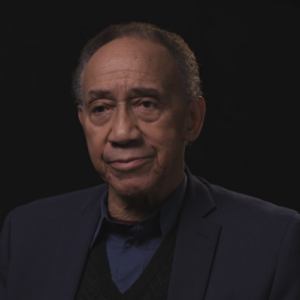Hilary Hallett: So what changes in Hollywood after World War One is that it really emerges as the world’s dominant movie producer. Right. So, you know, previously the French industry was very the movie industry was extremely strong. The German industry was extremely strong there, decimated by World War One, those industries and Hollywood. You know, by 1922 is making 80% of the movies that are shown around the world. Right. That is a position it jumps into and then jealously guards clearly through the rest of this 20th century. Right. But what’s also happening is that there’s, you know, a sort of almost immediate debate once, you know, the war’s post-traumatic postwar turmoil settles down about what gets called the revolution in morals and manners. And this is a sort of it emerges initially from a magazine set of magazine articles that are published in sort of the equivalent of the Time magazine of its day. It’s called the Literary Digest. And this is sort of a magazine aimed at sort of middle class Americans. And there’s a great deal of concern that in the post-World War one moment, this new image of women, you know, that’s sort of encapsulated by the modern girl or the flapper starts to show up by 1920 and movies and and advertisements. And it’s a very different image of of femininity. You know, it’s a woman whose clothes are for the first time, you know, very streamlined. You know, we get more hammers come up, much shorter hair gets cut for the first time. And Bob’s right, which is, you know, considered at the time to be revolutionary, you know, women’s long hair and always been their glory. Here you have them chopping it off and wearing these sort of simple slip like dresses that only come down to their knees. I mean, you can see the female silhouette very clearly. And it’s a new type of silhouette. It’s a slimmer, more boyish, active body type. Right. That becomes very popularized by this image of the flapper that Hollywood takes off. So the revolution around those morals is the sense that girls, the younger generation of modern girls are suddenly doing things the boys have done a lot of. Right. They’re running around unchaperoned. They’re going at it. You know, it’s a dance clubs to the movies. And then they’re going to the movies and they’re seeing these images, right. Of modern women on screen that are reinforcing this attitude that modern girls coming out of World War One. Women have just run the votes they’re working on, you know, greater numbers outside the home than ever before. Right. And so this modern woman can really do whatever the boys can do. And there’s a lot of excitement attached to that idea. But there’s also a lot of fear and Hollywood and sort of taking up that image and starting to really popularize it and send the most glamorous examples of it around the world. Actresses like Colleen Moore and Clara Bow, right, are epitomizing this kind of free spirited young woman that, you know, as I said, just acts like the boys, you know, Hollywood gets, you know. Drawn into the controversy surrounding this image.
Interviewer: Women… Women in Hollywood in the 20s. What is their role there? They’re not just…
Hilary Hallett: So, yeah, I mean, so women have come also out of World War One and the industry itself. But the industry has grown tremendously, as I said. And it’s. But women have, you know, come on. I’m sorry. This is not an easy story to tell. Really. Start back. You know, women starting in the 19 tens, really before the war, as Hollywood is just growing, growing up, it isn’t even called Hollywood yet. Right. It’s relocating to Los Angeles and women as as the industry is starting to consolidate around L.A. and roll war around the World War One era. Are directing, producing, editing, writing movies in record numbers right there, really in directing and feels like directing and writing, the numbers are not as good today as they were in 1920, immediately after the war. So the early film industry is really pioneered by, you know, women like Mary Pickford, who is not just an actress, but also a producer, and the sort of driving force behind the creation of United Artists. Right. Which is the studio that she says we have to create because she sees what’s happening and she’s a brilliant businesswoman and she sees that the studios are starting to consolidate right after World War One as they’re growing, they’re looking for more efficient ways to turn out more movies and they’re consolidating their structures. And so she starts United Artists as a way to maintain control. Right. She sees that what’s mostly happened up until this point is that women start off as actresses and then they move into producing or they move into directing or they move into editing. But there’s this sort of there’s a fluidity in the business, right? It isn’t people. There’s no unions yet, if you think about that. Right? So there’s this fluidity in the business that allows women to really move around in ways that that will become impossible, you know, by the 1930s. But they come out of World War One, right, Still writing record numbers of films. And and much of this is about Hollywood’s decision sort of again around the time of World War One as it’s consolidating to try to actively appeal to a female audience. This was, you know, the intent of all the biggest producers of the era, because the way that they looked at the way the theater industry had worked and the theater industry had grown in respectability and grown in size by attracting more women, by making it respectable entertainment. And so the early movie industry, which had largely like in the Nickelodeon era, been shown mostly to a sort of immigrant working class male audience, really, you know, starts to you know, the producers want to expand beyond that, right? And so they’re actively trying to get more women into movie audiences in the way that they think that they can do. That is by having women write the movies, by having directors like Lois Weber, you know, you know, write films for women. The films are advertised as trying to appeal to women. And they they succeed in doing that right by the by Biden Again, by 1922, when you start to get the first surveys of exhibitors, exhibitors are saying that they think that about two thirds of the audience is composed of women. By that point, we don’t have hard statistics to know if that’s true, but that perception definitely percolates up from the exhibitors and producers feel like, you know, they’ve been trying to attract these women into the audience and they’ve succeeded, and those are the women that they need to continue to attract because they have the opposite assumption they have today, which is that if a boy likes the movie, he’ll bring the girl. Then they think if the if the girl likes the movie, she’ll bring the boy. So, you know, you know, this is also why it’s the heyday of sort of films that are centered on female characters. And so you also and this and this gives actresses a lot more power since so many of these films are centered on their personalities. And the producers again understand that the actor, the who’s ever the star is usually the best way to try to guarantee, you know, to try to predict box office success. So it gives these powerful actresses like Mary Pickford is the example. People like to use a lot of leverage. Right. And, you know, creating their own production companies within studios or as Pickford finally does, just creating her own studio. But after World War One, it’s the heyday of independent production. You know, there’s over 100 new independent companies that are that spring up. Many of these are headed by women now. They will most of them fail, right? Because this is also the moment when, as I said, studios are really starting to emerge as these kinds of the big eight, the big five and the little three that are going to dominate film production for the next 50 years.
Interviewer: So what changes then in the thirties? It sounds like it was pretty profitable.
Hilary Hallett: What was the film industry.
Interviewer: Or having having women appealing to women as an audience and and having them be the ones making, you know, creating movies? Well, what.
Hilary Hallett: Was changing in the. I mean, what changes over the course of the twenties? The first there’s there’s there’s a conflict between Hollywood producers and writers, the creative personnel of Hollywood. Let’s just say their desire to appeal to a mass audience by drawing on some of the more controversial and interesting figures like the flapper. Right. Using those kinds of broader cultural symbols. Right. In their films. There’s a there’s a conflict, though, between their desire to draw upon this revolution in manners and morals and these sentiments and the sort of guardians of public morality, let’s say. Right. The folks that are making up, some of the folks that are making up the women’s movement, which is very powerful at this time. The Protestant churches. Right. And then the Catholic Church and all three of those groups in this sort of more top down way are very concerned with telling the people that they consider themselves to be responsible for. So the Catholic priests, obviously their parishioners, you know, 20 million Catholics in America at this point. The women’s clubs, all the various young women. Right. The Protestant clubs, the churches, they’re they are concerned with trying to improve the morality of the mass of Americans. They aren’t really interested in. And if a film does well or not. Right. This is one of the things that Hollywood is constantly saying, like these films are profitable, they’re doing well. We should be allowed to tackle mature subjects. We should be allowed to use satire. We should be allowed to, you know, draw on and discuss in our stories, you know, the kind of controversial subjects of the day. But but the sort of higher ups in many of these sort of moral groups don’t agree with that view they have felt from the beginning. Film is the only medium, you know, in the history of the United States that was subject to prior restraint, censor censorship. You know, this has been a very important case that was rolled in 1915 that said that unlike books, you know, unlike the theater, you could pre censor films because films were not an artistic expression. They were not, you know, subject, therefore to free speech protections. They were instead a business, pure and simple. That was what the Supreme Court decision said in 1915. And as a business, pure and simple. Right. States, cities are allowed to regulate it. And, you know, in the name of the safety of public morals. And so this decision comes down in 1915. And then what happens is that state and city censorship boards start to spring up, you know, which are staffed by women’s club members and Protestant and Catholic priests. Right. Who are concerned because their argument is that Hollywood has such a large mass audience, as I said, initially composed largely of working class people, and then all these women get added into the mix. Those are the people that, you know, the guardians morality think most need protection, right? The people that read books that go to the theater, you know, it’s a much more select and usually economically elite group of people. Hollywood’s mass audience, you know, its critics argue, as part of why it needs this additional censorship, because it can influence even people that can’t read. Right. Say an illiterate, you know, immigrant that’s illiterate in English, rather, you know, comes to America. He can go see a film or she can go see a film and be affected by those images in a way that, you know, a book you know, a book on a sensational topic would not affect that person.
Interviewer: So but so then the code comes in pretty early, right?
Hilary Hallett: So the code gets passed. So because of this, you know, this the Supreme Court’s decision and then the number of city and state, there’s five states that have censorship boards, you know, by 1920, and there are innumerable cities. And so Hollywood is getting very tired of having to deal with a different cut, you know, different censors demands in different places. Right. So they they and then in 1921, there’s a series of scandals within Hollywood. Many people have heard of the Fatty Arbuckle scandal. Right. A famous comedian, slapstick comedian has a party and an actress dies at the party. Well, not at the party. She becomes sick at the party. She dies five days after the party. And this, you know, was sort of like the O.J. trial of its day. It’s front page news, every paper across the country for months and months and months. The accusation is initially that he they can’t say this in the press, but the suggestion is that he raped her. And because he was so large, he injured her. She died of a ruptured bladder. Medically, that’s not possible. But that is the suggestion in the press. And Hollywood really gets dragged in to this public furor about what’s happening with. You know, morals within within Hollywood itself, within its workers. And what sort of example are they giving, Especially a star like Arbuckle, who’s mainly aimed at children, is a slapstick comedian. Right. How can this man who’s, you know, beloved by millions of children all over the world, right, be held up as some sort of symbol to them? So in reaction really to this scandal, but growing out of the concern of censorship in general, that, you know, after the war, the major movie producers decided to hire William Hayes, who has just successfully orchestrated Warren Harding’s presidential campaign. He is an early expert in public relations, and he has been a he’s a Republican insider. The Republicans have just taken control of both houses in Congress. And, you know, the president is now a Republican. So there’s been a huge changeover, a power. And the, you know, major producers recognize that they’re starting to encounter more and more censorship opposition. So they hire Hays as really a conduit with Washington. Right. To help sort of, you know, deal with their public relations problems. And he comes up with a code. He draws in some of the religious figures that are opposed to Hollywood. And they write what’s called the Hays Code popularly, literally. And they pass this code. And it’s a it’s a code that is going to it’s largely aimed at reducing the amount of sex and violence on screens. So they outline all kinds of things you’re not supposed to do or not do. And this code is passed and accepted by all the studios, but it has no enforcement mechanism. So Hays, his job is is to convince people and the people in his office to go along with it, but they can’t actually force any of the studios to do anything. And so really what Hays is, is, as I said, is a public relations person. Right. That puts a good he’s a former Presbyterian deacon himself. He’s from Indiana. He is the face of Midwestern, you know, moralism. And he puts a good face on this industry, which is led primarily by immigrant Jews. And there’s a great deal of anti-Semitism, you know, in in this period immediately after the war, Henry Ford’s painting, you know, funds a newspaper that is, you know, charging that the Jewish producers in Hollywood are ruining America. You know, this is a narrative that is beginning to spread into the popular culture in America, that Jewish control of this industry is part of its moral threat. Right. Anti-Semitic stereotypes for centuries had, you know, stereotyped Jewish people as degenerate, immoral. But, you know, with respect to Christians. Right. And having no respect for Christians. And so this is also part of the narrative surrounding even the Fatty Arbuckle scandal. Right. Is that Paramount producers like Adam Zucker and Jesse Lasky, you know, who have hired him, you know, are using men like our Buckle Wright to spread bad morals among actresses. Right. And they’re supporting these men, forcing girls to the casting couch, like those supposedly the woman who died at the party that he had helped make me feel like I’m getting lost.
Interviewer: You know, and then but then in the middle of all this, there’s the advent of sound. How does that change things for women onscreen?
Hilary Hallett: Right. So then Hollywood makes its first talking film in 1926 with the jazz singer, and no one thinks that it’s going to be. You know, there’s very little dialog on the jazz singer. No one thinks it’s going to be very popular. It’s mostly singing this, the synchronized sound, and it’s this. People love it, but it takes about three years to make that conversion, that full conversion to sound during that time. For the first time, really, most of the studios take out large loans from Wall Street. So this is 26, 27, 28 for the first time, taking out massive loans from Wall Street to refit all of their theaters so that they can do sound now. And so it’s a massively expensive undertaking that puts producers in debt to Wall Street for the first time. And what it also does with the addition of sound is.
Interviewer: It allows.
Hilary Hallett: It’s one thing to show a sexually suggestive situation, but when you have actors or actresses like Mae West talking about sexually suggestive situations, singing about sexually suggestive situations, it’s a whole other level of affront to some of these Christian moralists and women’s club members. Right. That have been worried about the moral influence of Hollywood. And so, you know, on the one hand, it gives, you know, actresses like Mae West and Barbara Stanwyck, a lot of room, right, to sort of address and engage the changing roles that women have. In society at this point in new ways. But on the other hand, it brings down a lot of criticism from these same censors that have been active now for more than ten or 15 years. Many of them, they see it from their perception. Hollywood keeps telling them they’re going to improve their ways. But what they see is a kind of decline in morality as sound gets introduced and as as people take up, you know, subjects in more detail.
Interviewer: And at the time. So Mae West arrives in Hollywood in 1932. What’s going on in Hollywood, then? What’s going on in the country then?
Hilary Hallett: Right. So Mae West is brought out initially. You know, the Depression hits in 1929. And for the first year, Hollywood box office maintains its same level. And so initially, you know, Hollywood thinks it’s going to be depression proof. Right? Unlike every other business in America, you know, unemployment is at 25, 30%. In some industries, it’s 50 to 75%. This is a unprecedentedly severe economic depression that will last for an unprecedented amount of time. But at the beginning, Hollywood looks like it’s going to sail through it. And then by 1932, their box office starts to decline. And Mae West is brought to Hollywood in part to address that declining box office issue. She’s been an enormous success, you know, even though she’s run into trouble with the law already. But nonetheless, you know, her sort of brand of ribald humor and satire and song has made her into a vaudeville and Broadway star. And there had been interest in bringing her big hit DIAMOND Well, from the stage to Hollywood from the very beginning. But initially, Hollywood producers actually played it safe and said, no, you know, we you know, they went to the Hays Office. The Hays office said there’s no way Diamond Will is ever going to be able to you know, it’s going to get the censors on our backs. If there’s no way or this will not be a huge problem. And they and they follow his advice in this case initially. But then as the depression starts to hit Hollywood in 1932, they changed their mind and they want baby. They bring Mae West to Hollywood and the Hays Office goes along. They said, You can’t use the name. You have to change the name. So what was Diamond Lowe on the stage? Because she’s done him wrong. This is a film they make in like 18 days or something. They they turn it out very, very quickly, in part because they don’t want the Hays Office poking around a lot. They’re not asked to make a whole lot of changes. It’s sort of made quickly and then released. And it’s an enormous success everywhere in the country. The idea that she you know, she appealed to Midwestern audiences and rural America as much as she appealed to big city audiences in Chicago, in New York, she women loved her, unlike, you know, some sex symbols. Women loved her brand of humor and have sort of always kind of getting it over on the guys, you know, sirens, seductress types of sex symbols like Marilyn Monroe, for instance, sometimes don’t have a strong female following. But but the comedic ones like West typically do. Right. And she really sets that. She makes that very clear, you know, from the beginning that this is she crosses class lines. And so Hollywood says, what do you mean? How can this be immoral? Right? I mean, how can you argue with her success? They quickly released her second film, It Ain’t No Sin, also an enormous box office success. And so, you know, I mean, out of her paramount jokes that she saves Paramount, which was heavily in debt to Wall Street and having all kinds of financial problems paying off its loans at this point because the box office had declined. And the success of those two films alone in 1932 and into early 1933 really helped to keep Paramount, you know, from going further into debt. So she’s an enormous success. But she is also, you know, she’s exactly what the Catholic Church finds objectionable about Hollywood’s sexual that the sort of sexual morality that they claim Hollywood is spreading. So, I mean, okay.
Interviewer: She don’t know I’m wrong. That’s sort of her first starring movie. What’s different about that film than the films that have been around for all these sort of fallen women films and gangster films and. Like, why is that sort of revolutionary? Right. So she done.
Hilary Hallett: Wrong. I mean, Mae West operates in this same kind of moral universe in some ways as as the as a Victorian play, and that there’s the good woman and the bad woman, but she inverts them. They’re not seen as well. Mae West takes the Victorian morality of sort of the fallen woman and the and the siren and the good woman. And she makes the fallen woman the good woman. So she she uses the same types, but she changes their meanings and she is able to portray women that usually would have been portrayed, you know, in under Victorian morality as pathetic, as down and out, you know, as victims of men and of society. She takes that type of role, but she uses women’s sexual power to sort of always win. So it’s it’s a real it’s it’s working with the same archetypes as Victorian morality, but it’s completely changing what they do. And for most people, right, this would have reflected in some way the reality of what they saw in that more realistically than what Victorian morality had done in the 19th century. Right, Because we all know that some women are very successful at women that are confident in their sexual appeal, that know how to use their sexual appeal in a way that are able to use their sexual peeling away that benefits them. And she takes that wider understanding and sort of puts it on the screen for the first time.
Interviewer: But it’s more than just your sexual appeal, isn’t it? I mean, it’s it’s her her wordplay kind of gives her this dominance over men in her in her films.
Hilary Hallett: Yes. Yes. I mean, she’s I sorry, I probably should’ve done that. But she. She Image Mae West could not have been Mae West without sound, obviously. I mean, shoot, someone says she can make a lullaby sound like a siren. Seductress, you know, numbers. She can take a simple line. She’s the master of the double entendre. She’s been writing these kinds of jokes and quips, you know, for decades at this point. And she knows how to make people laugh about subjects that usually are treated very seriously. So sex is usually this subject that you’re not even supposed to talk about in public. All right. She can take the subject of sex and, you know, and her desire for men and make people laugh about it. That’s revolutionary. That had not been done before. I mean, the closest, I think, cultural precursor to Mae West, you really have to look to blues women, African-American blues, women singers in the 1920s. Right. Who are singing songs about like people like Bessie Smith, who are singing songs about wanting the right handy man. I don’t know if you know that song or I Want a Little Sugar in My Bowl, who are singing about women’s sexual desires in this sort of upbeat. You know, this is okay playful manner. She’s the first white woman to do that that I can think of in popular culture to really sort of take women’s desires and and sort of celebrate them and make them make them funny and entertaining.
Interviewer: Where do you see those those African-American performers? Do you see their influence in her style?
Hilary Hallett: Well, yeah, absolutely. I mean, she her. I mean, part of it also makes her so interesting in the 1920s is she’s the antithesis of the flapper. She is, you know, an 1890s, late Victorian buxom belle. You know, in terms of her clothing, it’s completely dated. It does not, you know, keep up with the fashions that are sweeping the nation at this point in the 1920s. Her hairstyle, the elaborate, you know, coiffure as opposed to the sort of simple bobs that are starting to come in. So she she’s she’s very much shaped by though, the theatrical world of the 1920s and the 1920s. I mean, yeah, the theatrical world of the 1920s and the theatrical world of the 1920s, right, was also a period in which the music industry was first exploding. And so she is a singer. She’s a dancer. She’s doing, you know, moves on stage like the shimmy, which is coming out of these blues singers traditions. She’s very much she’s going to blues clubs. She’s watching these women perform in New York City. So she’s absolutely taking some of their style and intonation and dances and bringing them into her act.
Interviewer: Now, I know that that 1898 style that she’s bringing just does that kind of separation in time give her a license to do things she wouldn’t get away with if she said her films in present day?
Hilary Hallett: Yeah, I think that the putting them into the putting things into a different time period always makes it gives you a little bit more leeway because you’re not commenting. You know, it’s not it. If the concern is that you’re going to influence young people to imitate it, if you set it in a different time period, it’s easier to say, Well, that’s the past. They know that’s not realistic, you know, behavior for today. So I think that setting it in the past gives her a little bit more moral leeway. I think that, you know, she’s a mature woman when she comes to Hollywood. She’s 40 years old. And so she’s also very much around 40. She’s very much acting out an older idea of older women. Right. Being sexually attractive, being more in command. This was something that, you know, had been a very stereotypical character, you know, in literature and in theater in the 19th century. But it will die out right in the 1920s. We start to see this extreme emphasis on youth, on slender ness. Right? That’s the dominant trend that will continue to carry out throughout the 20th century. Her style is this voluptuous, more voluptuous, curvy type of older woman is is not a style that Hollywood will continue to support, you know, in the 20th century.
Interviewer: In that period in the thirties. What was the shelf life of an actress like her twice?
Hilary Hallett: Well, in the 1930s she was unusually old, just to be able to be frank about it. There were very few leading actresses that would have been over 40. The extreme emphasis on youth in Hollywood meant that most leading women’s careers started to decline by their mid thirties. So she’s really coming out there. There’s a couple of other examples that I can think of that they also emerged from the stage, right? Like women like Allen Asimov, who had these very successful theater careers, come to Hollywood late and are still able to, you know, translate their appeal as an older woman on film. But it’s very atypical to that.
Interviewer: Was that in a way, have that have any bearing on why she was allowed to have so much power in Hollywood? It seems like it’s sort of more typical of the twenties than the thirties, the role she had.
Hilary Hallett: So yeah, yeah, it’s like two different stories. It’s her luck. She has a lot of leeway initially because they’re because the studios are scrambling. They’re trying to figure out the box office is declined and they’re trying to figure out new ways to bring people into the audience. And so they bring her out to give her a try. And she strikes gold. Right. Her first two films are enormously successful. And so initially she has a lot of leeway because she’s you know, she insists on basically translating her stage persona to the screen and it’s successful. So that gives her a certain kind of clout. And and women in Hollywood by the early thirties are, in general losing power. There are very few directors by this point. There are fewer producers. There are still more women writers probably than there are today. So women have maintained a you know, there’s still a significant number of the writers in Hollywood, but they’re losing out on a lot of the other creative positions that they had been able to really excel in, in the tens and the twenties by the thirties. But if you have a powerful actress like West who has, you know, already a very established sense of her worth and what she does well and is willing to sort of negotiate, you know, you can still, as a woman in Hollywood, you know, have more control than many other businesses. So she succeeds. I’m not sure if that answers your question.
Interviewer: Yeah, the the decline of actresses power in the thirties. Is the depression a factor in this?
Hilary Hallett: Right. Well, so we finished the censorship story because, I mean, that’s the first. So I don’t remember where she saw.
Interviewer: 1934, what happens in 1934.
Hilary Hallett: So what happens in 1933 is that the outrage over West’s films and others, Hollywood always imitates its own success. So when when her films are successful, you know, you get a film like Barbara Stanwyck’s Baby Face, which is another has another very sexually aggressive woman who’s not afraid to use her physical charms to get what she wants. So you have a sort of spate of these films that follow. You have a spate of gangster films that are sort of addressing the rise in crime that’s occurred with prohibition that are more graphic than than had previously been the case. And then you also have the publication of the Pain Film Studies, which are published in 1933. So the pain film studies were commissioned by a Protestant reverend who had been active in film censorship at this point for almost two decades and was certainly an individual who felt like, you know, moral Americans have been trying to get Hollywood to behave for decades, and all they did was keep pushing the needle in the wrong direction. So he has at this point, 20 years of feeling like he’s been trying to get Hollywood to improve its morality. And he has failed. He hires a number of academics to try to finally study and prove what he believes, which is that Hollywood is affecting children in terrible ways. It’s leading girls to immorality and it’s leading boys to violence. So it takes a while, of course, because academics always take a long time, but that they publish these seven books which are very careful and don’t actually support that he hires them to really nail Hollywood to the wall, is what he says in a letter. But he the academics are very careful and they don’t really say that. But what happens is, is that he then hire someone else to write a book called Our Movie Made Children, which is published at the end of 1933. And that’s the sort of popularized version of these academic findings. And that book seems to support this idea that Hollywood is like a hypodermic needle and it’s injecting violence and immorality into the youth of America. And this becomes a bestseller. Our movie made children, and it seems to lend scientific credibility with all these studies and interviews and numbers that they tabulate to this idea that Hollywood is really, you know, affecting a moral decline. And so you have the same film study, you have the depression, Right. Which has hit Hollywood by this point. And Hollywood is struggling to repay its loans. And then you have, you know, Mae West films and the sort of films that had sparked in the gangster films and all of these things together really get the Catholic Church in particular up in arms. The Catholic Church decides to launch a boycott against the movie industry, the Legion of Decency, which is sort of, you know, lay arm of the Catholic Church, but is led by priests. Right. Has priests all over America preach against the movie industry and demand that their faithful sign a petition that says that they won’t go to see movies that have not been approved by the Legion of Decency. And the threat of that sort of massive boycott of 20 million people is really what forces the movie industry to decide. They need to take the Hays Code more seriously than they have at this point. And so up until this point so it’s in 1934 then that the Hays Office hires a new enforcer of the code, a new person. That’s going to be the go between between the his office of the studios, a man named Joseph Breen, who is a very devout Catholic and has also been active in censorship at this point for over ten years and really feels is also very anti-Semitic and really feels like the Jewish led industry, This Jewish led industry is is is the problem. He sees himself as, you know, a Christian moral police that will force Jewish producers to stop making these kinds of morally degenerate films. This is the language that he uses. You know, and I tell.
Interviewer: So he comes in now the the church is saying that that however many, many people are going to boycott, but church goers don’t actually feel that way.
Hilary Hallett: So this was always the complicated thing that Hollywood could point to. These films are extremely successful. They’re successful with Catholics, they’re successful with Protestants. There’s, as I said, urban rural audiences. The films that they’re making, you know, as the Depression is hitting Hollywood, are doing great at the box office. And so and from sort of exhibitors writing and letters about audiences reaction, we have a pretty strong sense of just how popular these gangster movies, these Midwest films were with a giant swath of Americans. And yet because this is, you know, these kinds of this this type of reform is really a top down reform where people that think they know better than the masses of Americans filling movie theaters. Right. Really need to They see their job as stepping in and providing a kind of guidance that that these more impressionable masses need. And so it doesn’t matter that most people like these movies. It matters what a few people. Right. That are leading these censorship organizations like.
Interviewer: So what effect does this initially have on Mae West’s films?
Hilary Hallett: Mae West can’t be censored and be funny. That’s that’s really the problem. You know, once they start taking once the Hays Office gets enforcement, once the producers agree to enforcement on the the office of the Hays. I’m sorry, I can’t speak against her. Once. Once. Sorry. I messed up my hair now. Once they once the Hays Office gets enforcement ability over the Hollywood studios, what that means is that they get the scripts beforehand and they can go through them now with a red line and insist on cutting dialog, changing dialog and the kind of satire. And you know, that she was so expert, you know, at delivering gets destroyed by that process and so she can’t be funny anymore. And so much of her ability to take on these very sexually forward positions, we can say, right, lay in her ability to make a joke out of it. The mix of sexuality with humor. Right, was part of what made her so successful and so popular. So the movies are not as successful with the box office because she’s she’s she can’t be Mae West.
Interviewer: Is it fair to say before that she’s the most powerful woman in Hollywood? Is that a stretch?
Hilary Hallett: Um, I think that’s I would say that’s probably a stretch. I mean, I’m not I’m trying to think. 32. 33. I mean, I’m trying to think of who’s still around and there’s still some women behind the scenes that are pretty powerful then. She’s the most powerful actress.
Interviewer: I would say.
Hilary Hallett: For a couple of years. It’s very short, as you know. She… But she is… She comes out. Of New York with such a strong sense of who she is and an insistence on being that persona. And that is very unusual. Most of the actresses that are around in the thirties are brought up through the Hollywood system, have been shaped or molded by it in certain ways and have had to fight with increasing restrictions on their autonomy. She has developed very autonomously and comes to Hollywood and insists on being who she is initially and gets her way and then makes Hollywood all this money. You know, she Amran was shot for like $200,000. Half of it went to Mae West. Right. That’s a sign of how powerful she was. Like she got, you know, So sh. But, you know, the limits of her power are also clear because once the men decide they need, you know, the men in charge of the studio. So the studio system at this point is pretty much fully in place. You know, you have eight studios that are controlling the exhibition of over 90% of American movies at this point. So if you don’t work with them, you don’t work. And yet the studio’s women’s position in Hollywood, really. Goes even daft down further as the studios start to struggle in the fifties because Hollywood is still maintained a commitment that under the studio system to making a great number of films, many of which are aimed at a female audience. And that will change after World War Two.
Interviewer: And those films that are being made about women. Sorry. Can you talk about the fact that women are forced to make choices in these films? They need to choose between empowerment, liberation, true love. They can’t get everything they want in these movies.
Hilary Hallett: So you want to talk about like what’s happening with gender in the thirties in China? Yeah. Okay, So. After the Hays Code. The Hays Code really insists that any moral infraction be paid for. You know, it’s a Catholic idea, moral compensating values. So if a woman breaks society’s rules, then she has to be punished for breaking society’s rules. Most of the sins that women commit in the eyes of, you know, the Catholic Church are moral sense. And so these are almost always involving, you know, sexuality. But there’s also increasingly you start to see in Hollywood films the sin of ambition, right? So a star is born, Right, which starts off as a movie called What Price Hollywood and Then Becomes a Star is born, and it’s later for iterations. You know, it’s a story about the dangers of female ambition and a story about if you’re too successful, what that will do to your personal life. It’s complicated, though, because in the thirties, actresses in survey after survey shows this. Not only do Americans consider them to be more symbols of a kind of gender equality that are that is are very, very rare at that point. Right. Actresses are some of the few people in women’s magazines that have these very successful careers. They are still sexually desirable. Those two things usually are in opposition for women. Most women that succeed professionally up through the 1930s that have gone to law school or medical school or become professors running these nontraditional occupations, the vast majority of them don’t even marry. Something like 75% of women that get higher degrees don’t marry. And so actresses are some of the few symbols that young women can look at and say there’s a successful woman who also like men like her, she can get married. She has a family. Right. Because all of the publicity surrounding actors, actresses always shows them with their families and children. And so they do present this image of women who have professional ambitions, but also managed to have personal lives, too. So Hollywood in real life is presenting is sort of is continuing to present a path that opens up on the depression, which is gender, more gender equality, more shared brand of money. During the Depression, men are losing their jobs in greater numbers than women because the kinds of jobs that most women have moved into are service occupations, and those don’t decline as significantly as manufacturing. Manufacturing is, you know, the hardest hit of all the occupations. And so, you know, you do have more shared breadwinning than just the average American home in the 1930s. And that could have been a path, right that continued and grew right after the Depression. But what you also have in the 1930s are increasing concerns about the fact that often now many families, the mother might be the only one that’s working. Right. What is this? You know, there’s a rise in divorce. There’s a rise in desertion. There’s a massive decline in childbirth all during the Depression. And so there’s a lot of concern about what, you know, women moving into jobs and increasing numbers is doing and men losing their jobs in increasing numbers is doing to the stability of the American family. And so in Hollywood films, you start to see this because of the Hays Code. You know, you start to see less, fewer unconventional representations of women in terms of their personal ambition or in terms of their sexuality. And when you do see them, you know, when actresses do get to play those kinds of parts, they always have to get punished for it if they break rules. What happens after World War Two, though? You know, once World War Two starts in 1941, there’s obviously an a massive need for manpower. Many men are taken overseas to support the war effort. Women continue in even greater numbers to move into these nontraditional occupations. But during World War Two, it becomes very clear in the larger public discourse that this is temporary, that the men are away. This is an emergency situation. You know, we’re asking women to step into these roles temporarily. You know, but when men come back, there will be a readjustment. And that readjustment will involve women, you know, leaving those roles. And that’s exactly what happens. Right. The 19 1945. You know, many women there’s Gallup is doing polls, Many women who’ve moved into nontraditional occupations at this point want to stay in those jobs. But they are either fired or the, you know, level of cultural guilt placed on working women coming out of World War Two is enormous. You know, there’s a lot society as a whole, the dominant cultural narrative is we’ve had ten years of depression, four years of world war. We need a return to stability and normalcy. And that means in some ways really reinventing gender roles to be more traditional than they have been now at this point for several generations.
Interviewer: The idea of sacrifice may make us unwilling to sacrifice. He or she wants to play these flawed characters, but. But she doesn’t want them punished for their flaws or their voices. Hmm. How does that fly? Well, initially.
Hilary Hallett: It works very well. I mean, she’s done him wrong, and it ain’t no sin. She. I mean, she she only she plays women who are are open about the fact that they have had a very active sex life up until this point. And they are she really takes on the male role in her sexual persona, the typical male role. So she boasts about her conquests. She considers them a sign of her prowess. And and she does typically get married at the end. But it’s because, you know, who would pass up Cary Grant, who’s also like 12 years younger than her. Right. So she gets the younger, handsome man at the end. But you don’t consider that to really be a compromise because, you know, he’s Cary Grant. She’s so you know, she she she is able I guess that’s what I was trying to swim for. Maybe I didn’t do it very well. But it’s not clear that most Americans think that the Hays Code, its values are correct necessarily. It’s the Hays Code is something that is written by a Catholic priest. And the sort of demands and the moral strictures of the Hays Code are extremely severe. It’s not clear from the box office of her films or very successful. It wouldn’t suggest that people are so offended by this that, you know, they would say no one should see this movie.
Interviewer: Why does Shirley Temple then.
Hilary Hallett: Consider Same.
Interviewer: For popularity. I mean, it’s just because the film stopped being funny or.
Hilary Hallett: I think the film stopped being funny. Yeah, I think. I mean, I think that she stops being funny when she gets censored. And so now after 1934, you know, the new female star that will replace her in many ways, you know, is the reigning box office diva is Shirley Temple. The Depression wants a more. The Depression combined with the Hays Code work to really. I mean, force might be a very strong word, but I think forces in too strong a word, you know, for what happens to Hollywood in terms of its representation of women. You know, it really the comment, the combining the combined pressures of the economic depression and of the sort of attack by, you know, the academy at this point, seemingly with the publication of our movie Made Children and then by the Catholic Church with the Legion of Decency. Boy, really for us, Hollywood for the first time into limiting the kinds of female characters that it will show on screen.
Interviewer: Can you talk a little bit about Mae West persona? Can you just describe what was the Mae West persona?
Hilary Hallett: So, you know, the Mae West persona was.
Interviewer: Very she was a.
Hilary Hallett: It was a type that would have been more familiar to people in the late 19th century. She comes out of vaudeville and a tradition of wisecracking body humor that gets the audience laughing about subjects that are usually too sensitive to discuss. So, you know, sex being one of the number one issues that most people have a hard time talking about, particularly women. You know, there were so many strictures against the public discussion of sexuality at all. And yet on the vaudeville stage, you know, certain types of performers and then certain types of singers start to do this in a in a kind of comedic way, you know, with very you know, so her style, you know, you wear that. I’m not going to describe the thing.
Interviewer: Well, I guess also what who were some of the other women at the time? Like, what are their personas, You know, the Garbo’s or Marlene Dietrich? What’s the difference?
Hilary Hallett: Right. So, you know, in the in the thirties, the Garbo’s, the military sex.
Interviewer: Hagar Was the world.
Hilary Hallett: Yeah. No, no, she’s not. HARLOW Yeah. I mean, she is playing a much. Older. What distinguishes her from some of the other, uh, leading ladies of the early thirties like Greta Garbo, Marlene Dietrich there, Europeans. And so as Europeans, they are also given a certain kind of license initially to be more sexual than an all-American type of actress can be. But they are usually their sexuality is is usually figured in in dramatic ways. So they are not comics. You know, these are dramatic actresses that are more siren types and that often don’t. And their films often don’t end happily, let’s say. Right. They do. Often, they are often forced to repent or sort of, you know, they’re punished. Whereas worse in treating these subjects lightly and comedically isn’t punished and always manages to sort of, you know, pass the man. And happily so the men are usually happy that she’s best of them and everything sort of works out in her favor in the end. Whereas Garbo and Dietrich has two other sort of reigning, you know, leading ladies of that, the early thirties are much more tragic figures.
Interviewer: But then there was persona. How much how much of it is sort of contingent on age? It sounds like her being older to start with helps with it. But then, I mean, at certain point, does that work anymore?
Hilary Hallett: I mean, I’m not an expert on her later part of that at the height of her career. But I do think part of what happens, I mean, she was always dated in terms of her presentations. You know, when she arrives in Hollywood, dress like it’s the 1890s that is not the fashion. So I don’t think it’s fair to say that her it’s it’s her dated presentation that spells the end of her career. And she is getting older. And there’s no doubt that film is less kind you know than the theater to older actresses. So that I would think plays a factor in how playing an increasingly aging, sexually aggressive woman right becomes less attractive on screen. But I think the main problem is she’s not funny anymore.
Interviewer: Yeah. Um, you know, I saw your book. You talked about Mary Pickford being America’s sweetheart. Mm. If you had to say Mae West was America’s anything, what was she? Sire. I think it’s. I think you.
Hilary Hallett: Have an answer for. America’s.
Interviewer: When I got here last.
Hilary Hallett: America’s comic. I mean, I think that the thing that is most important to realize is just how good she was at getting people to laugh about things that they didn’t even think they could talk about. So I think that, you know, she says, you know, we have Lucille Ball perhaps because of Mae West. You know, we have like this line of sort of screw screwball comedy in a way, comes from her wordplay. I mean, she’s different than, say, obviously a Katharine Hepburn or some of the women that are playing those kinds of roles. But she brings in a kind of wordplay and humor around particularly, you know, sexuality that I can’t think of another person, you know, who was successful at that of making sex a joke.
Interviewer: And her kind of flipping of the gender roles in her films. Was was Huma an essential part of getting people to accept that.
Hilary Hallett: Without her humor, she she would never have been able to play the kind of sexually aggressive women with a dark past that she did. You know, she was her humor was instrumental in getting people to accept that that was okay. If you can make somebody laugh while you’re doing something that’s maybe a little uncomfortable, you have a much greater success at getting them to feel good about what you’re doing. And she could get everybody to laugh so she could get them. And plus, she was marrying something that people would have seen in life. I mean, I think we talked about this, but, you know, there was an awareness clearly that some women were able to use their sexuality to their advantage. And women liked that. That representation was shown on screen in a way that didn’t necessarily produce their tragic downfall because enough people would have experienced that. That was not the case.
Interviewer: You know, I think part of it has to do with kind of reversing these gender roles. But she people called her female impersonator. Mm hmm. Starting very early. Mm hmm. Why do you think that was? I mean.
Hilary Hallett: She because she’s mocking the conventions of femininity. She’s mocking the idea that the blond of the dumb blond, you know, the ditzy I mean, she’s you know, she’s on the front end. Well, the only way that I would say she’s fashion forward is with her platinum hair. That is not something that most people, most actresses will take up until, you know, the late thirties. She’s doing it, you know, in the beginning of her career. Platinum hair, really blond hair, had been associated mostly with prostitutes that it spread to stage actresses to some extent. And then it becomes this national craze when movie produce, when movie actresses take it up. But she’s I lost her question. I’m sorry.
Interviewer: I got her as a female impersonator. Right. Okay.
Hilary Hallett: So, I mean, she’s a female because she’s mocking the conventions of femininity in terms of. Making the woman the sexually aggressor know, making the woman the person that controls the situation. Humor is a sign of control. If you can get people to laugh, you are controlling them. So the fact that she’s able to make people laugh at the portrayal of these characters that are upending the idea that women are passive, that blonds are ditzy, you know, women’s sexuality victimizes them. Right. She takes all of those kinds of cultural stereotypes and upends them. You know, so there’s there’s a performance of femininity. She’s self-aware of the conventions, of femininity. And then by tweaking them, it’s almost like she’s acting feminine, if that makes sense.
Interviewer: Yeah. Like female. Yeah.
Hilary Hallett: Yeah. And the amount of makeup, I would think that to some extent. Also her. Her physicality with the elaborate you know, this with the elaborate platinum wig, with the heavy makeup, with the, you know, very ornate gowns that she’s wearing in a time when makeup is becoming simpler for film, you know, clothes are becoming more streamlined and simple. Hair is becoming more streamlined and simple. She’s you know, she’s outside of all the sort of dominant fashion trends of the period. And so it’s similar almost more in a way, to like what a drag queen would look like in terms of the art of femininity. She’s so heavily on the art side of making herself into this feminine look that it almost doesn’t look real in the context of a period where makeup and hair and clothes are all getting simpler.
Interviewer: That’s great. It makes a lot of sense her in these films with, you know, she’s got the heavy Brooklyn accent. And do you see a class commentary in those films?
Hilary Hallett: I think that she’s taking yeah, absolutely. I mean, working class women. You know, so let me sort of let me think how to start this. The brand of sexuality that she’s also kind of selling emerges from a largely from immigrant working class urban areas in which women felt much more comfortable using their sexuality. This is where the conventions of dating arise, right? Women don’t make enough money at the sort of factory jobs that they might have, and they get boys to take them out to hell. And they have the boys pay for it, right, because they’re not making enough money to pay for it. Women are also this is dating and treating, right? Many working class surveys show. Right. They don’t feel so bad canoodling as they would have said at the time, right after a boy takes them to the movies or to a dance. Right. There is a there is a more forgiving approach, right, to young women, sexuality and working class neighborhoods than the dominant middle class culture wants people to accept.
Interviewer: You talk in your book that it was a book or an article. He talked about the idea of the problem girls was it was me a problem girl I’ve seen referred to as a tough girl.
Hilary Hallett: Mm hmm. She was too old and too mature and too successful to be a problem, girl. Problem girls, were these working class girls that were going out after work with their friends, dating boys and moralistic middle class reformers were very concerned about where this was heading, you know? But West was made to be a problem, girl. You have to also be somewhat vulnerable, right, to these kinds of agencies that are rising to deal with the moral infractions of, you know, teen pregnancy, premarital pregnancy concerns about that. Mae West Never. She’s not punished for her sexuality. It never seems to victimize her. And no one is ever able to successfully punish her for it. So I wouldn’t call her a problem right now.
Interviewer: But that that vulnerability is a question of the sort. Um, how possible is it to ever know her with the persona that she that she puts across? Do you feel like you’re seeing any of the actual woman in or does that or you’re just it’s just the character?
Hilary Hallett: I think it’s dangerous to think that, you know, any performer based on their persona. Um, I think it’s I think that she was a very successful, talented, creative artist who created a persona that worked very well for her. What that how how closely that really mirrored who Mae West was inside. Um, I think I don’t know. I’m not a biographer, but but I, you know, I pers that’s just my view. I don’t, I don’t think that we know actresses or actors based on their personas.
Interviewer: I don’t think they ever first knew either.
Hilary Hallett: Yeah. Yeah.
Interviewer: Did she not even know if her friends knew? Um. I’m just looking through my questions. Julia…
Hilary Hallett: They’re all really good and useful and.
Interviewer: To be. Um. Her attitude about marriage has a lot of funny quips about about marriage. Marriage is a great institution, but I’m not ready for an institution. Mm hmm. How transgressive is that in the thirties?
Hilary Hallett: So one of the ways that Hollywood actresses in general were also sort of transgressive in their private lives was that so many of them did get divorced and often multiple times. So this was one of the ways that would never happen on screen, clearly. But everyone reading the, you know, millions of magazines about movie stars that are around by the 1930s, you know, this is the largest medium of entertainment that the world has ever seen, you know, and that millions and millions of fans are reading stories about these women that clearly indicate that they subscribed, support, divorce, and, you know, their behavior shows it. So was attitudes towards men would have been more in line with typical Hollywood actresses in that way? But very true. But what she succeeds in doing is translating that to the screen. That’s what’s different, is that most actresses private lives look more like Mae West in many respects, but their screen lives don’t look like that. Her screen life mirrors that private reality. And this is one of the reasons that, you know, Hollywood actor actresses in particular are considered to be, you know, pushing the curve in terms of gender roles, treating marriage as though it’s not sacrosanct. Right. Is not a is something that the broader society is concerned about in the Depression, because divorce is skyrocketing. Marriages are breaking down, you know, in larger numbers than ever before. And so, you know, Hollywood is putting almost a positive spin on that because these women don’t suffer for that. They’re clearly still successful, desirable people.
Interviewer: So when she says in I forget which movie this is, you know, that she would only consider marriage as a last resort. Mm hmm. Is that something? That’s one of the things that’s kind of considered threatening.
Hilary Hallett: Yeah. I think considering marriage as a last resort is a is always a frightening idea for women. But it’s becoming an increasingly threatening idea for women as more women are doing that. Right. In the context of the Depression, where not only is divorce, right, but the age of marriage is going up, the number of marriages has declined significantly. The number of children that the average American woman is having has declined significantly. And so I think that it’s the the threat that that might actually be becoming real. That also makes her stance on that issue threatening to people is that, you know, during the Depression, there is this massive change in the habits of many, many, many American families. And people are concerned that that this is something that’s going to be a permanent feature of the landscape of the family.
Interviewer: So like to serve you. Oh, yeah.
Interviewer: Okay, two more questions. Okay, let’s it take two. Let’s just redo that first scene. And what do you think she just made of any modern descendants today? Who. Who do you think is kind of carrying her torch?
Hilary Hallett: Uh, Mae West. I’m so tired. I’m sorry. I’m not going to be able to come up with something. Contemporary culture.
Interviewer: Um, well, what lessons do you think?
Hilary Hallett: Oh, you know Lena Dunham, in a funny way. I mean, one of the things that I think that Lena. I mean, Lena Dunham to me jokes about sex. I mean, she’s a very different type. But. But women making humor out of something that in reality has been the source of a lot of their oppression and challenge in life is very rare. And the fact that Lena Dunham can get people to laugh about sex, um, to me makes her, in some ways a funny descendant of Mae West.
Interviewer: That really makes a lot of sense. We’ve been sort of going back and forth on.
Hilary Hallett: Well.
Interviewer: What we think about that.
Interviewer: Yeah, no, it’s complicated, right? Because she’s not really trying to be sex. A sexy woman. No, no. But who is very much trying to be that extra feminine.
Hilary Hallett: Yes. And yet not like you say, a female. You know, she’s so masculine in her delivery and in her stance and in her attitude that I think that’s part of what the contrast between the hyper feminine presentation, but the sort of masculine approach is part of what makes her interesting to watch and part of where her humor lies. And so like a Lena Dunham, who even though she’s not interested, so I don’t know, I think Lena Dunham has her own fashion style. You know, it’s not Mae West by any means, but but I think that the fact that she can make entertainment out of sex as a woman is so hard. And I mean, I just don’t think that there are that many actresses in the 20th century that have been able to do that.
Interviewer: Are there any lessons that women today could take from a movie like she done them wrong?
Hilary Hallett: You know, I think one of the lessons of Mae West is to have more confidence in what it is that you think you do best and what you, you know, in your own worth. Part of her power really lay in understanding that she had developed this successful persona and that it worked. And she and she didn’t let anyone tell her otherwise. And I think that that kind of confidence and her own creative spirit and judgment, you know, is part of what I think that we can all learn from, you know, is trust your gut, trust your creative instincts, you know, to tell you what you do best.
Interviewer: And it sounds like that’s sort of what audiences love at the beginning of the. Think it’s okay. It sounds like audiences, female artists in the thirties would kind of take the same lesson away. Or would the context mean something else?
Hilary Hallett: I mean, I think in the thirties it was slightly different in the sense that I think what audiences might have liked was that she got a way on screen publicly with doing things that most women couldn’t because of her particular brand of humor and approach. Right? She was able to take on this kind of very sexually aggressive, confident, you know, demeanor. And there were I mean, there were a lot of you know, this is the decade, the thirties of the tough, you know, wisecracking dames and tough girls. Women in the thirties are forced to do a lot of new things. And sometimes force is maybe not the right word, but women in the thirties have to take on a lot of new additional responsibilities, and there’s a lot of new hardship. But yeah, I’m getting tired.
Interviewer: I’m sorry. No, I think I think.
Hilary Hallett: Are we?
Interviewer: I just thought one question. Yeah, maybe this is a new era, but like, you teach, you know, the wrong. Mm hmm. Do you have anything to say about how students. Because I just. When I first saw this movie, I was, like, blown away by this person. Mm hmm. With actors, I always thought thirties actresses were a lot different. Do you get a reaction?
Hilary Hallett: What did you think thirties were like?
Interviewer: I think the great Garbo like.
Hilary Hallett: Sultry, tragic. Yeah.
Interviewer: And the fact that she was funny and bawdy. It was completely surprising to me as I was wondering if you.
Hilary Hallett: Students feel the same way.
Interviewer: If you could just.
Hilary Hallett: Yeah. Yeah. I mean teaching she done them wrong, you know, to a class typically composed of young women in college, they can’t believe that there was someone talking that way, you know, almost 80 or 90 years ago. But contemporary equivalents are few. You know, I think that the idea that this is Hollywood history in general, that there were, you know, in the 19 tens, twenties and thirties is starting to close down. But the women had a much wider range of roles, both on screen and behind the camera. Yeah, most people don’t know that history. They think that the fight over gender equality in Hollywood started, you know, like three years ago. But it’s it’s, you know, and they also think that things have probably steadily gotten better over the course of the 20th century when in fact, they kind of for women got better and then got worse and then got better, was not in any way a straight line of progress. So I think for young women watching these films today, it’s it’s it’s both chilling because you think, how could she be doing that then? And we hardly have any women that do that kind of thing now. But it’s also encouraging to know that there was this figure that had this enormously successful career, you know, by developing this persona and believing in it.
Interviewer: And that’s great, right? That’s good. Yeah. We need to do room tone, you know, to add one more word. Yeah, there was a big bump on up “he’s considered to be”. So if he could just say that phrase, you know.
Hilary Hallett: It’s considered to be considered to be considered to be.
Interviewer: A serious…
Hilary Hallett: Considered to be considered to be. Considered to be. Okay. Okay. Is that all right?
Interviewer: …Sound person do that. We have a room tone. Everyone just be quiet for a bit.
Hilary Hallett: I think the only other thing that I realized that I might have wanted to mention that didn’t come up in talking about censorship and maybe you can get into this video already. You know that to me, as a as an historian of film, one of the things that I find most frustrating about what happens with the Hays Code is that it’s very successful at clamping down on gender nonconformity. But the concern about violence in the films doesn’t, you know, the level of violence in films doesn’t change. Yes, they they they make sure that the gangsters are not the heroes, but the amount of violence. I mean, to me, one of the things that Hollywood one of its crimes in some ways is that we have had not enough sex in the movies and too much violence. And the Hays Code is partially responsible for that, in my opinion, because Catholics were way more concerned about sexuality than they were about violence.
Interviewer: And why is that?
Hilary Hallett: I mean, that the concern about divorce, about, you know, unwanted pregnancies, you know, as women are moving out of. As women are moving into the public sphere more, they’re not chaperoned very much anymore. They’re working. They’re going out at night. Right. The Catholic Church is very concerned about the sort of moral infractions that girls are going to get into in those kinds of situations. The concern about violence in American society. It’s it’s a concern. You see people, you know, concerned about how this might be hurting boys, and yet there’s no action really ever taken. You know, that limits the amount of violence that we see on screens, whereas the amount of like sexuality that we see on screen is the amount of women who are able to have sex and not get punished for it or get divorced and not get punished for it or have a job and not get punished for it. Right. The his code severely curtails all of that kind of behavior, but it doesn’t change the level of violence on screen at all, even though those two factors are what start off as driving the censorship movement. I think personally, I think it was always somewhat hypocritical. I think that they were always really most concerned about sex on screen. And the violence was something, you know, that they say, because in terms of the actions, it supports that theory of mine that it was really a concern about sex mostly.
Interviewer: So this sort of those were the keeps coming up now about smashing the patriarchy. That’s really an issue 89 years ago. Mm hmm.
Hilary Hallett: Wait, what do you mean.
Interviewer: About this sort of male dominated structure that women have to fit into? And when they start to rise, it threatens the traditional balance.
Hilary Hallett: Right. So you’re saying in terms of the scout. Yeah, right. It’s helping keep the patriarchy. Yes, absolutely. I mean, you know, I was raised a Catholic, but the Catholic Church is not I mean, it is literally a patriarchy. You know, men are in control of all of it. And so there is a Hollywood and and it’s unconventional actresses like West, because these are such public figures, you know, and such celebrated figures. Right. There really is a thread that, you know, that they pose to the patriarchal structure of power. And I think that they need to, you know, these powerful women in Hollywood need the patriarchy, needs them to be controlled in ways that are more conventionally acceptable to remove that threat.
Interviewer: Is, um, is this why so much comedy is centered on reversing gender roles like making men weaker and women more powerful? That cannot only really be done in comedy?
Hilary Hallett: Yeah, I think if you you know, if you make a drama about that, it gets censored. You know, if you make a comedy about it, you can say it’s not serious and it’s a joke. And so until the Hays Code gets full enforcement mechanisms, you know, you can do that. But even pre Hays code, that’s you know, the Hays Code is written in 21. There’s this long period right where it’s around and people are they’re trying to, you know, to varying degrees, take it seriously. And so I think that, you know, they’re taking that aspect of gender. They’re aware of the concern about the disruption to gender roles that these images are having and they try to limit them. But if you’re funny about them, then you can get away with it. Yeah, I guess that’s what I would say.
Interviewer: Yeah, that’s great. I actually wonder, I think for me and this may be sort of requires some speculation, but. Do you think? With me was persona was. Do you think she had an actual, like kind of like radical agenda to upend the patriarchy or was it more just she saw that this worked and this was popular?
Hilary Hallett: I don’t. I mean, again. Yeah. Speculation. I mean.
Interviewer: Actresses, theater.
Hilary Hallett: Actresses. Simone de Beauvoir, who writes the Second Sex in 1949. You know, the feminist manifesto, her chapter on the independent woman holds out the actress as the one symbol that in 1949, when she’s writing this book of a fully emancipated woman. And she says that’s because they are making their living out in the world and they don’t have to have their sexuality severed from their person, their personality for doing that. Men are allowed to. Men and women are successful. It makes them more sexually attracted. When women are successful, it makes them less sexually attractive usually. And so Simone de Beauvoir points to actresses like Sarah Bernhardt as who she’s talking about, Right. The reigning diva of the 19th century stage. Mae West is coming out of that theatrical tradition. And so women in the theater really are pioneering kind of feminism on the ground. They are pioneering an approach to being professional, ambitious. Many of them are, again, running their own theater companies, you know, in charge of the material that they’re soliciting. Some of them are writing it like Mae West. But so she’s coming out. They have a tradition of the theater in the 19th century stage called Dublin in the Brass, which means everybody in a theatrical production should be able to take on any role. And so, you know, in the world of the theater, that kind of fluidity between job occupations that early Hollywood has as well, Right. Was an entrenched model that in some ways the film industry is borrowing from since so many of the early personalities not just West, but so many of the early personalities in Hollywood started off on the stage. And so the stage had really been percolating a kind of I don’t know if that I would say she’s trying to bring down the patriarchy. Exactly, but I would say that she’s an early feminist. That word isn’t being used. But absolutely, she’s an early feminist. And if that that means yeah, it is trying to bring down the patriarchy. If it means that women should be able to do what men can do. Which is her position.
Interviewer: Yeah. So like the definition of feminism that in the teens, twenties, thirties, very different.
Hilary Hallett: From today.
Interviewer: Yeah.
Hilary Hallett: No, I wouldn’t say that. Why would you say that?
Interviewer: It seemed to be very politically oriented then. Is that not really…
Hilary Hallett: I think that the literature gives that sometimes gives that impression depending on what you read. But women’s rights is was specifically concerned with certain kinds of legal and political protections. Feminism as a concept, the word is French first starts getting used in France and it really is about, um, demanding not just political and legal equality, but from the very beginning. It’s about social equality and being able to do the same kinds of things in society that men can do. And that question of sexuality is wrapped up in feminism in a way that it is not in women’s rights, women’s rights. You know, we want married women to own property. We want women to be able to keep their own wages. We want women to be able to vote. Feminism is different from the very beginning of feminism is is less concerned with specific legal improvements than it is with social equality, really, and women being able to do what they wanted. As Margaret Fuller, who’s really maybe perhaps, in my opinion, the first feminist, says, let them be sea captains, if they will. Right. The idea that your sex should not determine your potential or what you can do in life. Feminism is really about all of that. Social women’s rights activists are very careful to keep it focused on political and legal gains.
Interviewer: Makes a lot of sense. So. So feminists of the thirties, would they consider me as one of them?
Hilary Hallett: Definitely. I would say absolutely. Because? Because sexuality was one of the new ingredients that feminism really brought into its idea, you know, this idea that women should have the same kinds of sexual freedoms as men. And that’s Mae West obvious position that women should be able to do what men do and that, you know, no one should. And people said, wow, I think it’s great.
Interviewer: That’s what happened. I asked you.
Hilary Hallett: I can’t let you.
Interviewer: Keep saying you’re tired, but know we’re not doing it at all. You really?
Hilary Hallett: I don’t know. What haven’t you asked me? I mean, should we? You said you want to talk about the movie, and I’m really like. We talked about the movie, right? Yeah, not.
Interviewer: Really. I’d love to. Um.
Hilary Hallett: I don’t know. I mean, it’s been a while since I’ve seen it, so I say that, but I feel like I have more of the production details in my head than I am. The film itself is a little shady I haven’t seen in a couple of years, but we could try. I mean, it’s up to you.
Interviewer: You know, I that would be really handy because it’s definitely one of the films we’re going to focus on.
Hilary Hallett: Yeah.
Interviewer: I mean, the basic plot, she’s she’s a former prostitute, now a saloon owner that, um, that young woman comes in and she she works in a saloon where young women come to kill themselves. Yeah. And that one, Sally comes in and she kind of rescues her, but then inadvertently puts her in a white slavery. And then, um, what’s the whole plot with the with the like.
Hilary Hallett: Yeah, that’s. That’s, that’s is not the point. Right. Nobody’s paying attention to the men in her movies. I mean, it’s a pretty flimsy story from what I remember. The power of the film, you know, plays in her ability to convincingly suggest that every man that she meets falls head over heels in love with her. And you know, that she does a very good job of picking the ones that she thinks will actually please her to or help her in certain ways, you know, to be the guy that she spends a certain amount of time with. I mean, I think the thing that I love about that movie, though, is Cary Grant as the I mean, it’s such a gender reversal. You know, he’s the younger man to her, more sophisticated older woman. And, you know, he’s out to, you know, reform her. But he is completely seduced by her, which is also a typical gender reversal. And so it’s just it’s playing with so many diff, you know, it’s it’s reversing so many typical gender stereotypes. And the fact that, you know, I think he does a really good job of acting completely besotted with her. So to see this, you know, younger man, besotted with this older woman is also, I think, a thrill for the audience. Probably was a thrill for a lot of women.
Interviewer: Definitely. There’s that one scene on the stairs where she’s being so aggressive. Yeah. And he’s resisting. You’re insulting me.
Hilary Hallett: Yeah.
Interviewer: Yeah, I think, um, it is. She’s. She. It does sort of take on, which is kind of like this female chauvinist. Yeah. Yeah, she is. She’s, um. That movie community has, really.
Hilary Hallett: No, I can’t. I brought it up, and now I don’t really. I mean, I think. Are you guys dealing with the diamond little stage production? Oh, yeah. Because, you know, it’s it’s a remake of that movie. Yeah. I mean, if that’s play. It’s. Yeah.
Interviewer: Yeah. Okay. Okay. Okay, great. Thank you so much. Sure. Yeah. I love.

